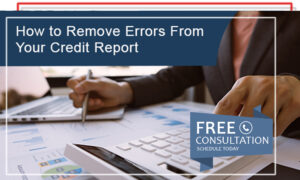Inaccurate information in credit reports refers to any detail or data point that is incorrect or misleading and does not accurately reflect a consumer’s credit history or current financial situation. These inaccuracies can be due to various reasons, such as clerical errors, mistaken identity, fraud, or outdated information. Some common examples of inaccurate information in credit reports and shy they are considered violations:
1. Incorrect Personal Information:
- Errors such as a wrong name, address, Social Security number, or employment
- These mistakes can occur due to clerical errors or mistaken
- Consequences: May lead to mixed credit files or identity theft
2. Account-Related Errors:
- Accounts listed on your report that don’t belong to
- This could be due to identity theft or a mix-up with someone who has a similar name or identifying
- Consequences: Could unfairly lower your credit score and suggest higher credit utilization or risk than
3. Inaccurate Account Status:
- Accounts incorrectly reported as open or closed, or wrong details about account
- Includes errors in reporting dates of last payment, account opening, or closing.
- Consequences: Can misrepresent your creditworthiness and financial stability.
4. Duplicate Entries:
- The same account appearing multiple times, often under slightly different names.
- Can happen due to reporting by multiple debt collectors for the same debt or clerical
- Consequences: Inflates debt levels and impacts credit utilization
5. Outdated Information:
- Negative information that remains on the report longer than the legally allowed duration (usually seven years for most negative information, ten years for bankruptcies).
- Consequences: Unfairly lowers your credit score and affects loan eligibility.
6. Incorrect Payment History:
- Payments incorrectly reported as late or
- Can happen due to clerical errors or if a payment is applied to the wrong account.
- Consequences: Payment history is a major factor in credit scoring, so errors can significantly impact your
7. Fraudulent Accounts or Transactions:
- Accounts or transactions appearing on your report that are the result of identity
- Consequences: Can drastically affect your credit score and suggest financial
8. Balance Errors:
- Incorrect reporting of account balances or credit
- Can occur due to timing issues in reporting or clerical
- Consequences: Affects credit utilization ratios, a key component in credit scoring.
9. Inaccurate Reporting of Credit Inquiries:
- Unauthorized or incorrect hard inquiries, which imply that you have applied for new
- Occurs if a lender or creditor makes an inquiry without permission, or if there’s a clerical
- Consequences: Multiple hard inquiries can lower your credit score and suggest higher credit
10. Wrongful Legal Information:
- Public records like bankruptcies, judgments, or liens inaccurately
- Can happen due to clerical errors or mistaken
- Consequences: Such records significantly damage credit
11. Mixed Files:
- Your credit information is mixed with that of another individual, often due to similar names or other personal
- Consequences: Can lead to significant errors in your credit report, affecting your ability to obtain
Addressing and correcting these inaccuracies is crucial because they can negatively impact your credit score, increase the cost of borrowing, and affect your overall financial health. Under the Fair Credit Reporting Act, consumers have the right to dispute inaccurate information on their credit reports, and credit bureaus are legally obligated to investigate and rectify any errors.

